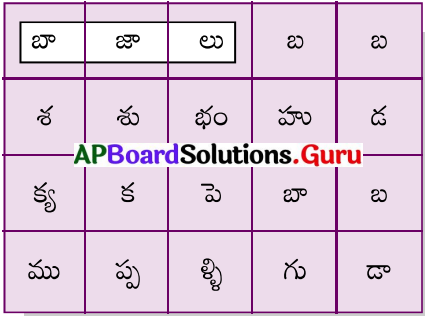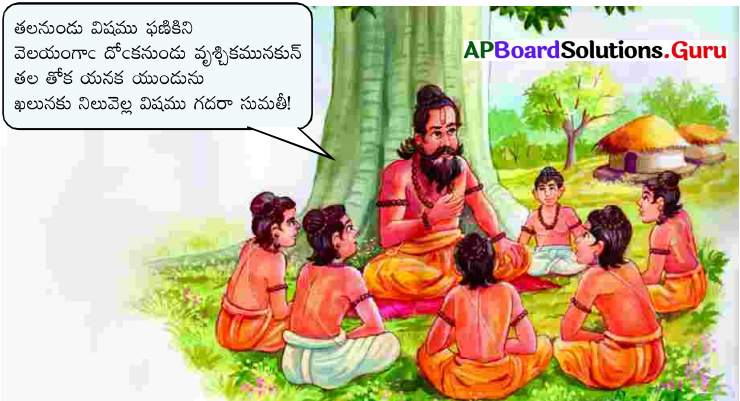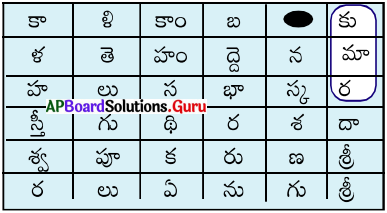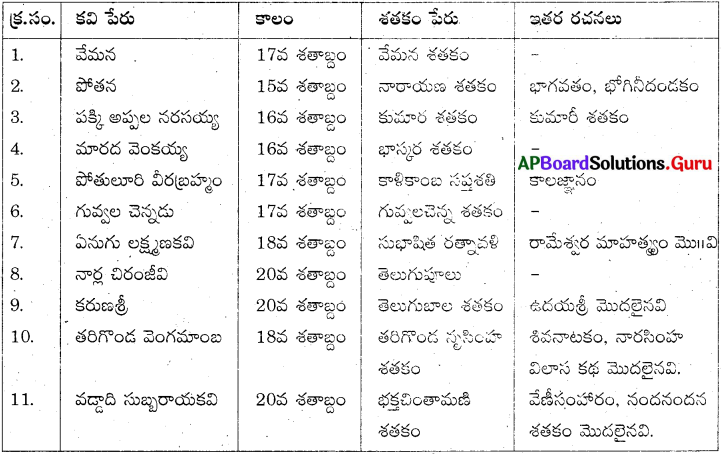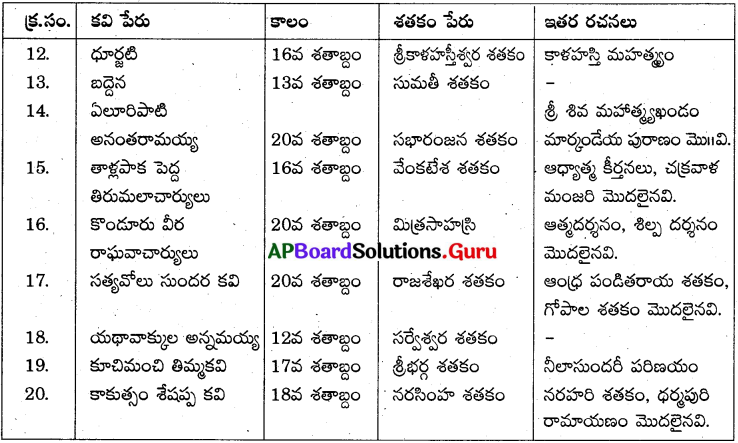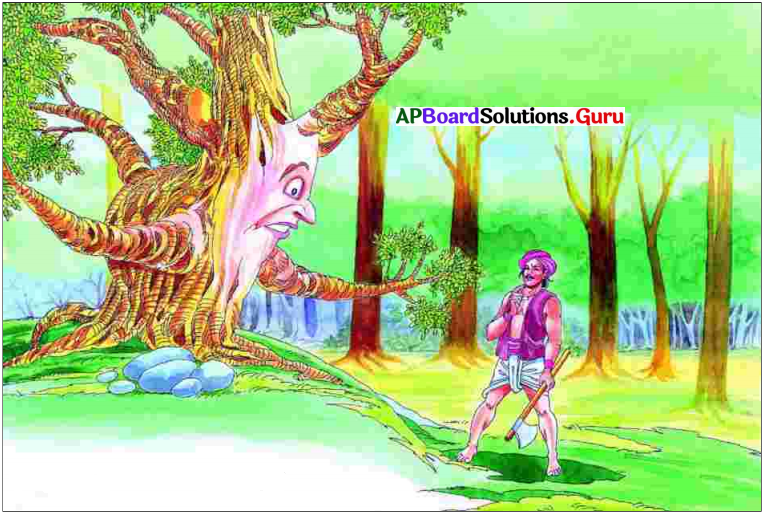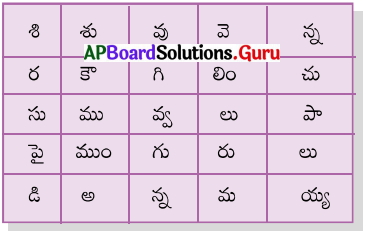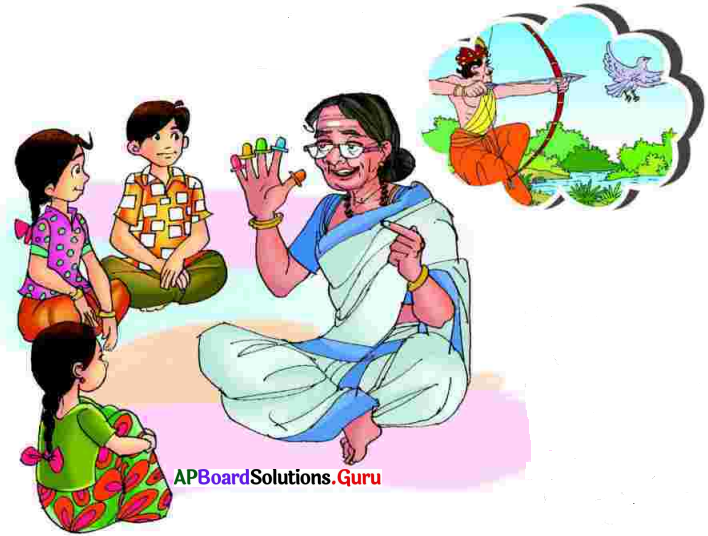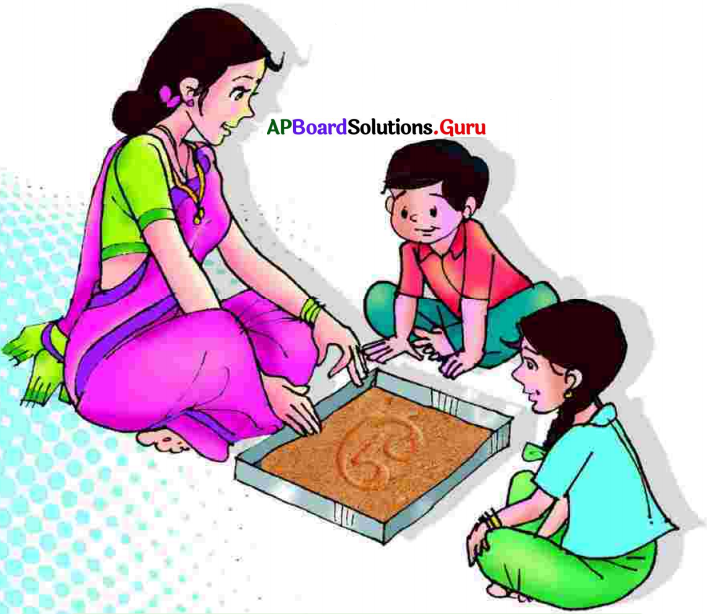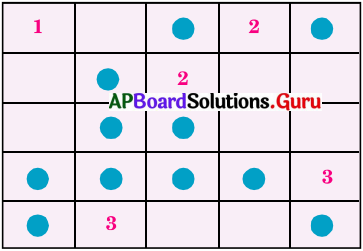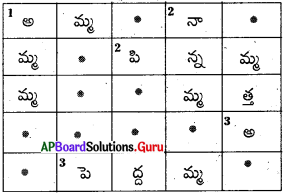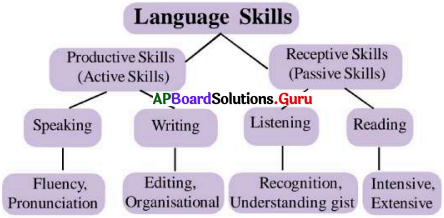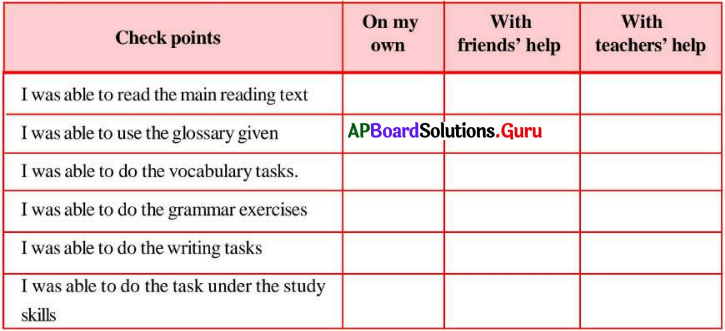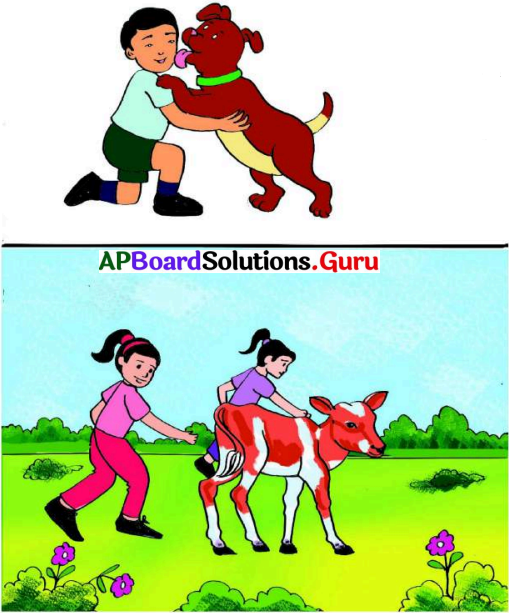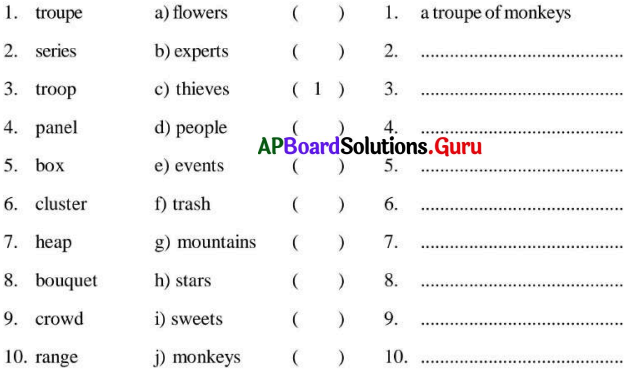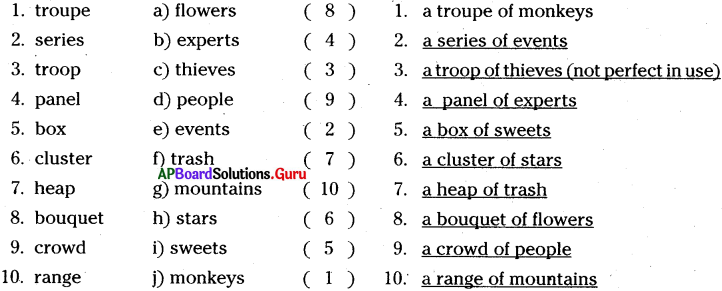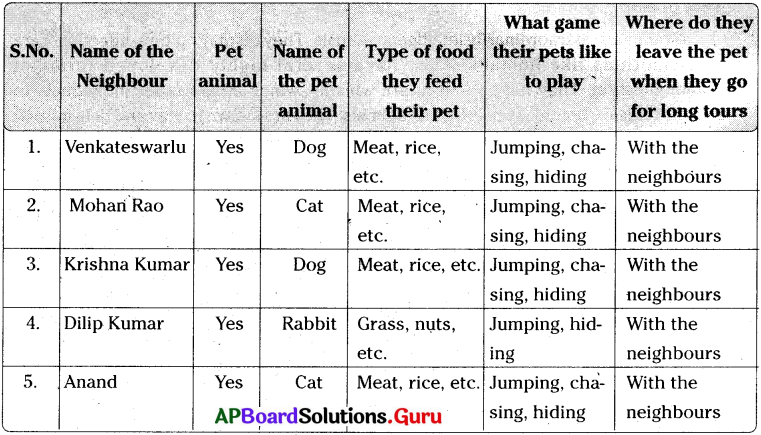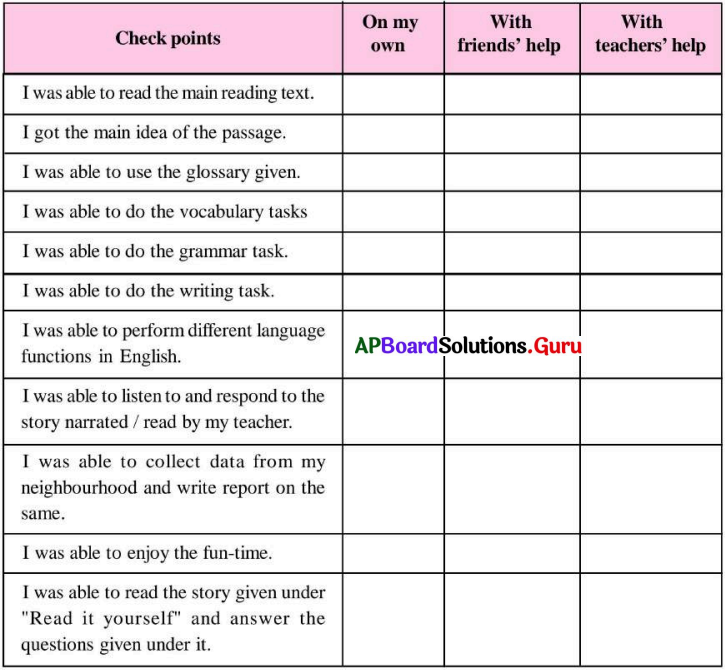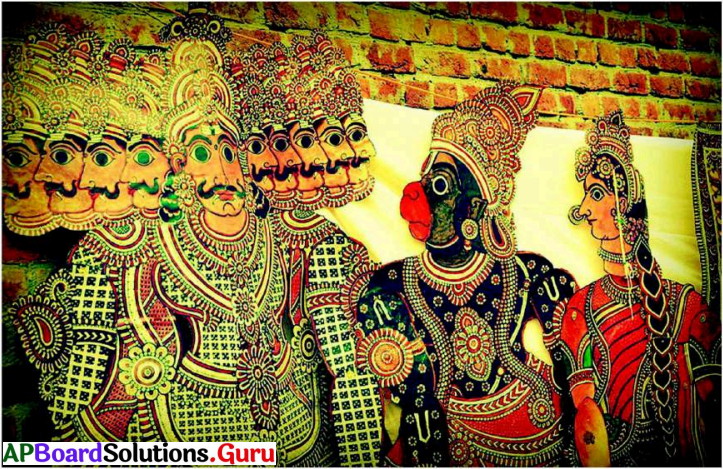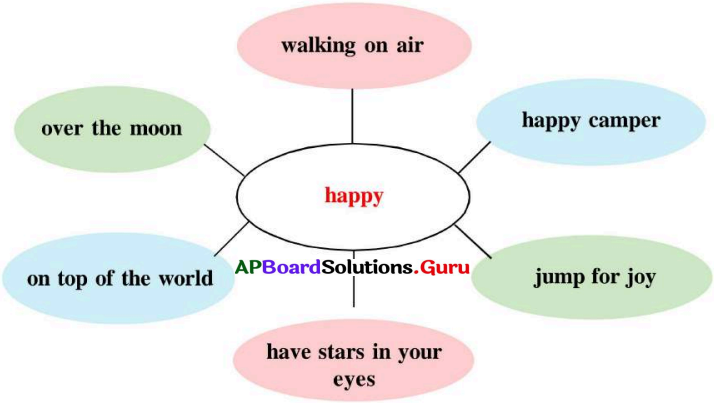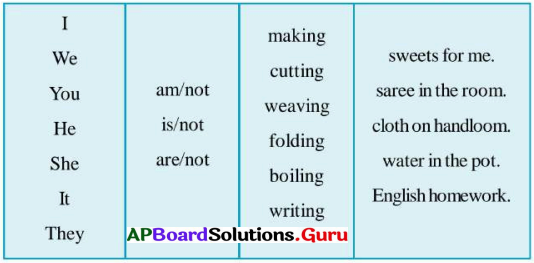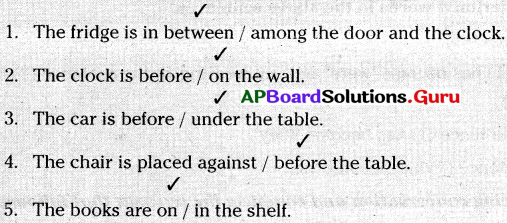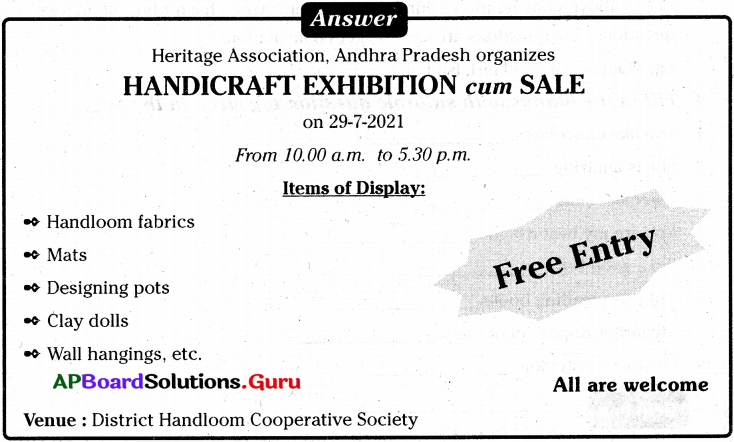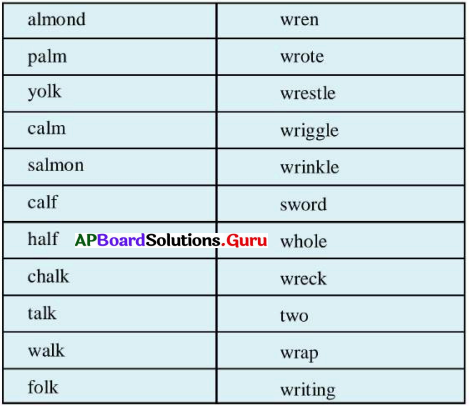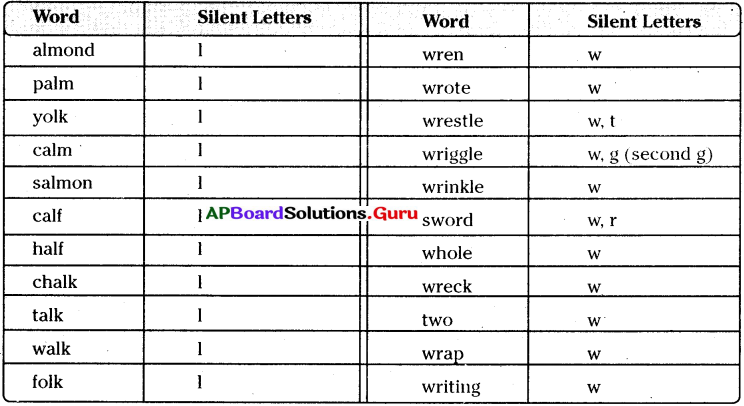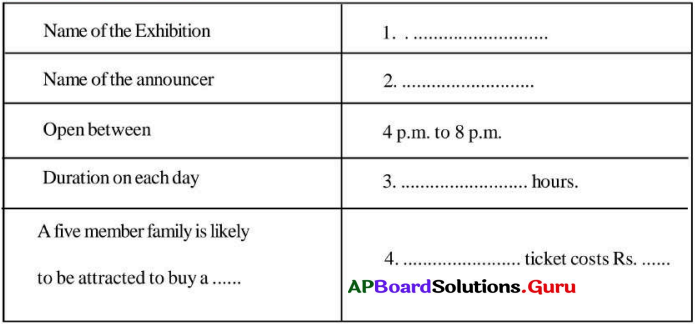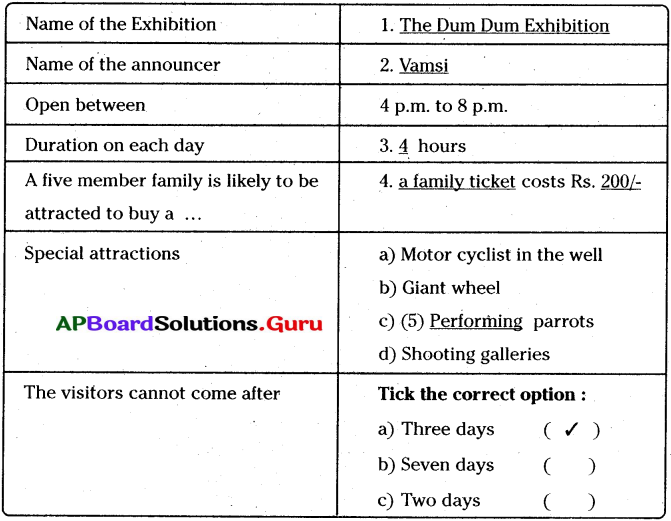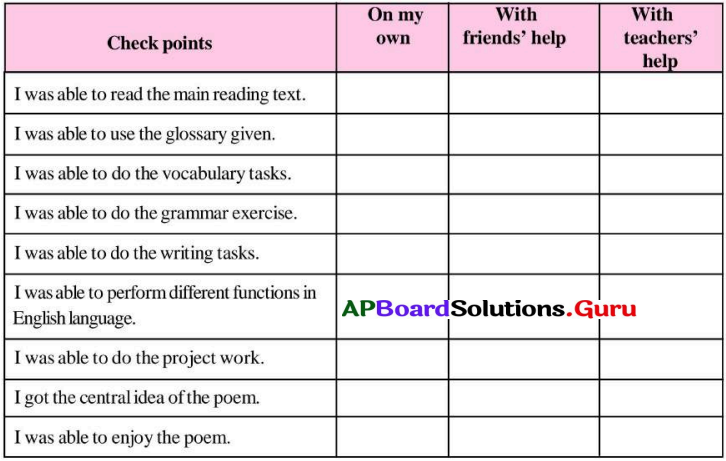SCERT AP 7th Class English Textbook Answers 6th Lesson The Why – Why Girl Textbook Questions and Answers.
AP State Syllabus 7th Class English Unit 6 Questions and Answers The Why – Why Girl
7th Class English Unit 6 The Why – Why Girl Textbook Questions and Answers
Look at the picture and answer the following questions.
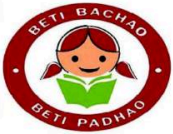
Question 1.
What do you read in the logo?
Answer:
I read ‘Beti Bachao…. Beti Padhao’ in the logo. The given logo tells us that we should save girl child. It also stresses the importance of the girl child education.
Question 2.
What is the meaning of ‘Beti Padhao-Beti Bachao’?
Answer:
This means ‘a girl child must be saved and she should study’.
Question 3.
Name some famous women personalities.
Answer:
P.V. Sindhu in badminton, Kalpana Chawla in aerospace, Sakunthala in Mathematics, Sunitha in playback singing and Savitri in film acting.

Question 4.
Talk about any girl child of high achievement.
Answer:
Shamili, also known as Baby Shamili, is an Indian actress. She has worked in Malayalam, Tamil, Kannada and Telugu films. She won the National Film Award for Best Child Art-ist for her character in the movie ‘Anjali’.
Question 5.
What are your future expectations as a girl child?
Answer:
As a girl child, 1 have the following future expectations.
- I would like to get equal opportunities with my brdther.
- I would like to have higher education.
- I would like to take part in awareness programmes regarding women empowerment.
- I would like to look after my parents with love and affection.
- I would like to become a doctor.
- I would like to serve the poor and the needy.
Questions Given In The Lesson
Possible answers to the questions given in the middle of the lesson :
Question 1.
Do you have any pet name?
Answer:
Yes, I have. My pet name is ‘Bablu’.
Question 2.
Mention at least five pet names that are popular in your area.
Answer:
1) Pandu, 2) Nani, 3) Janu, 4) Bujji, 5) Sweety, 6) Deepu, 7) Appu, 8) Lucky, 9) Venky, 10) Lalli, etc.
Question 3.
Are there any children in your surroundings who work for others?
Answer:
Yes, there are some children in our surroundings who work for others. Some work. Some children feed the cattle of others. Some children do the household work.

Question 4.
Mention some fields where we see children working?
Answer:
Children work in fields, in factories, down mines, as servants or maids, or selling goods in the street or at markets. Girls are more likely than boys to do domestic work, such as cleaning, making food and serving.
Question 5.
Is it right Moyna expecting thanks from the landlord?
Answer:
Yes, it is right Moyna expecting thanks from the landlord for her services because any service deserves thanks.
Question 6.
Are you curious like Moyna? Why?
Answer:
Yes, I am curious like Moyna because asking questions with why makes us know the reasons for many things. This gives us knowledge.
Reaping Comprehension
A. Answer the following questions.
Question 1.
Why was Moyna called ‘The Why-Why Girl’?
Answer:
Moyna was called The Why-Why Girl’ because she frequently asks ‘why?’.
Question 2.
What did the people do at the Samiti office?
Answer:
The Samiti was a place where people could come to learn to read and write, or simply sing and dance together.
Question 3.
What work did Moyna do for her family?
Answer:
Moyna has to tend the goats, collect the firewood, fetch the water and do other works for her family.
Question 4.
What kind of a girl was Moyna?
Answer:
Moyna was a strong, hard-working, fearless yoiing girl, a role model for all of us. She had the curiosity to learn and spread knowledge to others.

Question 5.
Name someone like Moyna in your surroundings.
Answer:
Mokshikta is a girl who always questions everybody and learns everything easily. She has no fear.
Question 6.
Do you like Moyna? Why?
Answer:
Yes. I like Moyna because she was a strong, hard-working, fearless young girl, a role model for all of us. She had the curiosity to learn and spread knowledge to others.
B. State whether the given statements are true or false. Write T’ for True and T’ for False.
1) The people in Moyna’s tribe eat snakes.
2) The author did not like Moyna.
3) It is very easy to persuade Moyna.
4) Moyna knew that the author was writing her story.
5) Moyna had to fetch water from the far off river.
Answer:
- True
- False
- False
- False
- True

C. Read the following sentences from the story. Arrange them in order of their happening. One is done for you.
| Statement |
No. |
| One morning, Moyna moved into the narrator’s hut. |
|
| Moyna chased a cobra one day. |
1 |
| Moyna demanded the teacher to change the school timings. |
|
| Moyna got admitted in school. |
|
| The narrator told Moyna that she can find answers to all her whys from the books. |
|
| Moyna became a teacher at the Samiti. |
|
Answer:
| Statement |
No. |
| One morning, Moyna moved into the narrator’s hut. |
2 |
| Moyna chased a cobra one day. |
1 |
| Moyna demanded the teacher to change the school timings. |
5 |
| Moyna got admitted in school. |
4 |
| The narrator told Moyna that she can find answers to all her whys from the books. |
3 |
| Moyna became a teacher at the Samiti. |
6 |
Vocabulary
A. You have come across the words plait, meat, write, etc in the text. Read the pairs of words given below.
plait – plate
meat – meet
write – right
These words have the same sound but have different meanings and may have different spelling too. Such words are called ‘Homophones’.
Read the paragraph and edit the underlined words using the correct words.
One knight, (a) I saw two men buy (b) the sea. There (c) feet were stuck in the sand. They saw the tied (d) coming up. The man with the red hare (e) caught hold of the other. Sum (f) boys who were nearby helped them come out of the danger.
Answer:
One night, (a) I saw two men by (b) the sea. Their (c) feet were stuck in the sand. They saw the tide (d) coming up. The man with the red hair (e) caught hold of the other. Some (f) boys who were nearby helped them come out of the danger.
B. Pairs of homophones are given in the brackets. Refer to the dictionary and fill in the blanks with the correct answers.
1) The horseman _______ the horse along the _______ . (road, rode)
2) Apply the _______ or you will _______ the fence. (break, brake)
3) Some tribes _______ before they hunt their _______. (prey, pray)
4) I _______ the bleating of a _______ of sheep passing by the school. (heard, herd)
5) The sweets were ________ by the _________.
Answer:
1) The horseman rode the horse along the road.
2) Apply the brake or you will break the fence.
3) Some tribes pray before they hunt their prey.
4) I heard the bleating of a herd of sheep passing by the school.
5) The sweets were made by the maid.

C. Phrasal verbs
You have come across the following phrases from the lesson.
1. I ran after her, grabbed her plait and held her back.
2. She just won’t give in.
3. Her father had gone off to far away Jamshedpur in search of work.
4. Moyna declared that she would move in with me.
5. If you pass by, you are sure to hear her impatient demanding voice.
In sentence 1, the phrase ran after is a combination of the verb ‘ran’ and the adverb ‘after’. Here run after means to dease or pursue.
Ex: I ran after the bus, but it did not stop for me.
In sentence 2, give in is a combination of the verb ‘give’ and the preposition ‘in’. Give in means stop competing or arguing and accept defeat.
The other phrasal verbs from the text are ……
chop off run off
Fill in the blacks with the suitable phrasal verbs given.

1. Latha’s father refused to send her to the picnic but when she requested for many times he ______ and sent her.
2. Why do dogs ______ cats?
3. You will smell the fragrance of the night queen when you ______ our garden.
4. Our family ______ to the new house once it was white washed.
5. Electricity has ______ in my area.
Answer:
1. Latha’s father refused to send her to the picnic but when she requested for many times he gave in and sent her.
2. Why do dogs run after cats?
3. You will smell the fragrance of the night queen when you pass by our garden.
4. Our family moves in / will move in to the new house once it was white washed.
5. Electricity has gone off in my area.
Grammar
A. i) ‘Wh’ Questions
Look at the following sentences from the text.
a) Why do we live in a leaf hut?
b) How much space does one old woman need?
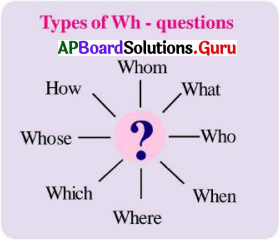
The underlined words are used to ask questions.
Now read the story once again and list out questions from the story.
1. ___________________________
2. ___________________________
3. ___________________________
4. ___________________________
5. ___________________________
Answer:
- Why shouldn’t I?
- Why shouldn’t I catch a cobra?
- Aren’t you tired?
- Who will bring the Babu’s goats home?
- Why should I thank him?
- Why do I have to walk miles to the river for water?
- Why do we live in a leaf hut?
- Why can’t we eat rice twice a day?
- Why should I eat their leftovers?
- Why do I have to graze the Babus’ goats?
- Why can’t the fish speak?
- Why do stars look so small if many of them are bigger than the Sun?
- Why do you read books before you go to sleep?
- Why is the school closed?
- Why shouldn’t I study too?
- Who’s stopping you?
- Why can’t you change the hours?
- If you don’t teach, how will 1 learn?
- Who do you think was the first girl to be admitted to the village primary school?
ii) Rearrange the words to make meaningful ‘Wh’ questions. Remember to use a capital letter to start a question and end with a question mark (?).
Ex. did / eat / what / you / yesterday?
A. What did you eat yesterday?
1. is / the Father / who / of / our Nation?
______________________
2. subject / which / your / is / favourite?
______________________
3. is / where / working / Sultan?
______________________
4. do / you / when / wake up?
______________________
5. project / will / whose / get / the / prize?
______________________
Answer:
- Who is the Father of our Nation?
- Which is your favourite subject?
- Where is Sultan working?
- When do you wake up?
- Whose project will get the prize?
iii) Read the sentence given below. Frame wh – questions to get the underlined word as your answer.
Sangeetha planted a mango sapling in her backyard on her birthday because she loved mangoes.
Ex. Who planted a mango sapling?
A. Sangeetha
1. What did Sangeetha do?
Answer:
She planted a mango sapling
2. What did Sangeetha plant?
Answer:
A mango sapling
3. Where did she plant the mango sapling?
Answer:
In her backyard
4. When did Sangeetha plant the mango sapling?
Answer:
On her birthday
5. What did she love?
Answer:
Mangoes

B. Using ‘If Clause’:
Read the sentence from the text.
1. If you attend classes at Samiti, you will get to know all these things.
In the given sentence, the clause ‘If you attend the Samiti’ expresses the condition. The main clause ‘you will know all these’ tells about the effect or result of the condition.
Read the following sentences also.
2. If you are hungry, I will get you something to eat.
3. I will attend the party if she invites me.
Points to remember
i) The condition introduced by ‘if expresses a real possibility in future.
ii) If the verb in the ‘if clause’ is in the present tense, the main clause takes will+ verb.
iii) ‘If clause’ can be placed either before or after the main clause.
iv) When the ‘if clause’ comes before the main clause, a comma is used after the ‘if clause. When the ‘if clause comes after the main clause, a comma should not be used.
Complete the following sentences using appropriate clause.
1. If you are good at English, ______ (get better job)
2. If you ask the teacher, ______(clarify your doubts)
3. ______, you will get pink colour, (mix red and white)
4. If you dial 1098, the child helpline ______ (help you)
5. ______, it will bite you. (pull the dog’s tail)
Answer:
1. If you are good at English, you will get a better job.
2. If you ask the teacher, she will clarify vour doubts.
3. If you mix red and white, you will get pink colour.
4. If you dial 1098, the child helpline will help you.
5. If you pull the dog’s tail, it will bite you.
In the above sentences we find ‘if clause’ before the ‘main clause’. We can Write the sentences by interchanging their positions also. One is done for you.
1. You will get a better job if you are good at English.
2. ______________________
3. ______________________
4. ______________________
5. ______________________
Answer:
- You will get a better job if you are good at English.
- The teacher will clarify your doubts if you ask her.
- You will get pink colour if you mix red and white.
- The child helpline will help you if you dial 1098.
- The dog will bite you if you pull its tail.

A. Work in groups. Develop a script for the story ‘The Why -Why Girl’ to present in the form of a drama.
Answer:
Script for Drama:
The Why-Why Girl
Characters : Moyna, Devi, Khiri, Malati
Devi : No, Moyna, don’t do that!
Moyna : But why? Why shouldn’t I?
Devi : It’s not a grass snake or a rat snake, it’s a cobra.
Moyna : Why shouldn’t I catch a cobra?
Devi : Why should you?
Moyna : We eat snakes, you know. The head you chop off, the skin you sell, the meat you cook.
Devi : Yes, but don’t do it this time.
Moyna : I will, I will.
Devi : No, child!
Moyna : But why ?
Devi : Come, come and rest for a little while.
Moyna : Why?
Devi : Aren’t you tired?
Moyna : Who will bring the goats home? And collect firewood and fetch water and lay traps for the birds?
Khiri : Moyna, don’t forget to thank the Babu for the rice he sent us.
Moyna : Why should I, mom ? Don’t 1 sweep the cowshed and do a thousand jobs for him? Does he ever thank me? Why should I?
Khiri : Never seen a child like this. All she keeps saying is‘Why’. No wonder the postman calls her Why-Why Girl!
Devi : I like her.
Khiri : But she’s very obstinate. Just won’t give in.
Moyna : Why do 1 have to walk so far to the river to fetch water? Why do we live in a leaf hut? Why can’t we eat rice twice a day? Why should 1 eat the leftovers? I will cook a delicious meal with green leaves and rice and crabs and chilli powder and eat with my family.
(That October, the narrator (Devi) stayed in the village for a month. One morning, Moyna declared that she would move in with the narrator.)
Khiri : No.
Moyna : (referring to the narrator) Why not? It’s a big hut. How much space does she need?
Khiri : What about going to work?
Moyna : I’ll go, but I’ll come here after work, (to the narrator) It (The mongoose) eats very little and chases away the bad snakes. The good snakes 1 catch and give to mother. She makes lovely snake curry. Pll bring some for you.
Malati : (to the narrator) She’ll exhaust you with her whys!
Moyna : Why do I have -to graze the Babus’ goats? Their boys can do it.
Moyna : Why can’t fish speak? Why do stars looks so small if many of them are bigger than the sun?
Moyna : Why do you read books before you go to sleep?
Devi : Because books have the answers to your why!
Moyna : I will learn to read and find the answers to my questions.
(When the narrator returned to the village a year later, the first thing she heard was Moyna’s voice.)
Moyna : Why is the school closed?
Malati : What do you mean, why?
Moyna : Why shouldn’t I study too?
Malati : Who’s stopping you?
Moyna : But there’s no class!
Malati : School is over for the day.
Moyna : Why?
Malati : Because, Moyna, I take classes from 9 to 11 in the morning,
Moyna : Why can’t you change the hours? I have to graze in the morning. I can come only after 11. If you don’t teach me, how will I learn? I will tell the old lady that none of us, goatherds and cowherds, can come if the hours are not changed.
At Moyna’s house …………
Moyna : (to her little sister and elder brother) You cut one tree and plant another two. You wash your hands before you eat, do you know why? You’ll get stomach pain if you don’t. You know nothing – do you know why? Because you don’t attend classes at the Samiti.
In the class …………
Moyna : (Moyna is 18 now. She teaches at the Samiti.) Don’t be lazy. Ask me questions. Ask me why mosquitoes should be destroyed, why the pole star is always in the north sky.
(Now the other children too are learning to ask ‘why’.)
B. Conventions of Writing.
Rewrite the following using appropriate punctuation marks.
aren’t you tired i asked moyna shook her head vigorously, who will bring the babu’s goats home and collect firewood and fetch water and lay the trap for the birds came moyna’s questions one after another.
“Aren’t you tired?” I asked. Moyna shook her head vigorously. “Who will bring the Babu’s goats home and collect firewood and fetch water, and lay the trap for the birds?” came Moyna’s questions, one after another.
Talking Time
Language Function: Giving Directions : Role-play the following conversation.
Sowrnya : Excuse me! Can you tell me the way to museum?
Ramya : Go straight. At the traffic lights, turn right. Go along the street. Walk past the park.
Sowmya : Shall I reach the museum?
Ramya : Certainly. If you go fifty meters ahead of the park, you will be there.
Sowmya : Great! Thanks for your help.
Ramya : You are welcome.
Language Functions to give Directions
- Go straight…
- Turn left / right at the junction / traffic lights
- Go past…
- Go over the junction…
- Go along the road until…
- The… is on your left/right.
- It’s opposite…
- It’s next to…
- It’s in between… and…
Project
Collect information about any successful woman in your district and write paragraph about her. Cover the following points.
Name
Place
Field in which she is famous
Interesting facts about her
Collect photos & Newspaper clippings
Answer:
Rithvika from Anantapur District :
|Nine-year-old Kadapala Rithvika Sri from Anantapur has conquered Mount Kilimanjaro in Tanzania, which is African continent’s highest peak, along with her father and guide. She climbed to Gilman’s Point at 5,681 metres above mean sea level on 25 February, 2021.
Hailing from M Agraharam village in Tadimarri mandal, Rithvika Sri is a class 2 student of St Vincent De Paul English Medium School of Anantapur. Her father Shankar is a cricket coach and sports coordinator in the Special Olympics Bharat wing of RDT, Anantapur.
She took Level 1 training in mountaineering at Rock Climbing School at Bhongir in Telangana and Level 2 training at Ladakh. “Rithvika Sri took part in the mountaineering expedition with enthusiasm and she could make it in her first attempt,” Shankar said.
The District Collector Gandham Chandrudu gave financial assistance for her moun-taineering expedition. The Collector released 2.98 lakh from the SC Corporation funds for the expedition. Congratulating Rithvika Sri for her mountaineering feat, Chandrudu said he encouraged the girl as she has talent and commitment.
Yamini Krishnamurthy – Chittoor District :
Yamini Krishnamurthy was born in Madanapalli, Chittoor District, Andhra Pradesh. She was born on a full moon night, and her grandfather named her Yamini Poornatilaka, which means “a full mark on the brow of night.” She was brought up in Chidambaram, Tamil Nadu. Her mother tongue is Telugu.
Yamini Krishnamurthy debuted in 1957 in Madras. She has the honour of being Asthana Nartaki (resident dancer) of the Tirumala Tirupati Devasthanam. Some critics have observed that Yamini’s dancing reflects rhythm personified. She was also known as “torch bearer” of Kuchipudi form of dance.
She has a leading place as an exponent of Bharatanatyam and Kuchipudi. She imparts dance lessons to younger dancers at her institute, Yamini School of Dance, Hauz Khas, New Delhi.
She released her autobiography, “A Passion for Dance”, a book well received by the readers. Yamini Krishnamurthy has never been married.
Her dancing career brought her many awards, including the Padma Shree (1968) Padma Bhushan (2001), and Padma Vibhushan (2016), which are among the highest civilian awards of the Republic of India. She was honoured with “Natya Shastr&” award by Shambhavi School of Dance at “Nayika-Excellence Personified” on the occasion of Women’s Day on 8 March 2014. She gave a lecture demonstration on “Contribution of Woman to Kuchipudi”. She also released a Kuchipudi Dance DVD featuring Prateeksha Kashi who is the daughter of Kuchipudi Danseuse Smt.Vyjayanthi Kashi, artistic director of Shambhavi.
P. Santha Ktunari – Kadapa District :
Santha’Kumari was an Indian musical artist and film actress. Her original name was Vellaala Subbamma. She was born on 17 May 1920. She was married to the Telugu film . director and producer P. Pullaiah.
Vellaala Subbamrha was born in Proddatur town, (Kadapa District, Andhra Pradesh) to Sreenivasa Rao and Pedda Narasamma. Her father was an actor and her mother was a classical music singer. Santhakumari learned classical music and violin under the guidance of Professor P. Sambamurthy and was a classmate of D. K. Pattammal. She joined a drama troupe and was an AIR artiste by the age of sixteen. She came to Madras (now Chennai) to pursue a career in music. She found employment in Vidyodaya School for a remuneration of Rs 2 per month. She sang along with music director S. Rajeswara Rao for AIR.
Santhakumari debuted in Telugu Cinema with Mayabazar (also known as Sasirekhaa Parinayam) in 1936. In. the following year she was a member of the Cast of Sarangadhara, film that was directed by P. Pullaiah, whom she met and married in the same year.
The couple used the name of PadmaSree Pictures, named after their daughter Padma, for some of their movies and had success with films such as Jayabheri (1959), Sri Venkateswara Mahatyam (1960), and Preminchi Choodu (1965). Santhakumari acted in most of the movies that were made by her husband, including Shavukaru (1950), Ardhangi (1955), Sri Venkateswara Mahatyam (1960), Shanti Nivasam (1960), and Ramudu Bheemudu (1964).
In 1947, the couple started the Ragini Pictures banner with Bheemavarapu Narasimha Rao and Bhakta Jana. They made 22 films on both PadmaSree and Ragini banners put together. She played many lead and supporting roles, with around 250 appearances in total.

Shobha Nagireddy – Kurnool District :
Shobha Nagi Reddy was an Indian politician from Andhra Pradesh, India. She represented the Allagadda constituency of Kurnool District in the Legislative Assembly of Andhra Pradesh for four terms until 2012. She served as the chairperson of Andhra Pradesh State Road Transport Corporation (APSRTC) having previously been General Secretary and also a state committee member in Telugu Desam Party. In 2012, she joined the newly formed YSR Congress. Her husband Bhuma Nagi Reddy is also a politician who served twice as a Member of Legislative Assembly and thrice as a Member of Parliament.
Shobha Nagireddy was the younger daughter of S. V. Subba Reddy, and sister of Nagarathamma.a politician and former minister from Andhra Pradesh. She was born and brought up in Allagadda, Kurnool,’Andhra Pradesh where she studied up to Intermediate. Her elder brother* S.V. Mohan Reddy, is also a politician and has brother- in-law Ramachandra Reddy.
Shoba Nagireddy first became actively engaged in politics in 1996, prior to which she was a housewife. Her husband, Bhuma Nagireddy, was elected as a Member of Parliament and so had to resign from his post as a Member of the Andhra Pradesh Legislative Assembly from the Allagadda constituency. Fighting as a candidate of Telugu Desam Party, she was elected to the vacant Assembly seat. She was elected four times consecutively to the state Assembly. She is the only woman in AP to have been legislator, along with her father, for two consecutive terms.
Shobha Nagireddy won Allagadda state assembly constituency posthumously which she has contested as YSR Congress candidate in the 2014 state election conduction May 7 of that year just days after her sudden death, by-election date announced soon. AUagadda Assembly constituency could be Seema Andhra first election mandate post bifurcation of Andhra Pradesh Legislative Assembly. Sh- it her life in an accident in the late hours of 23 April 2014.
Vanisri – Nellore District :
Vanisri was born as Ratna Kumari in Nellore, Andhra Pradesh, India in 1948. Her early life was marred with tragic losses: three members of her family, including her father, died of tuberculosis in a span of one month.
When she was 12 years old, she participated in a dance function at her school. In the audience was a Kannada film director, who thought she resembled actress Savithri Ganesh, then the top female star in South India. He offered Ratna the lead role in his Kannada film, and she took it despite her mother’s initial objections. The film became a hit, and she was offered more Kannada and Tamil films.
As her visibility grew, Telugu film offers came. She became the topmost heroine in the 1970’s with more hits like “Dasara Bolludu,” and “Prem Nagar.” Around this time, the South Indian film industry was gradually converting from black-and-white to color films, and Vanisri took full advantage of her appearance in color films. She wore bright costumes and applied heavy pancake makeup to cover up her dark complexion. She applied variety of lipsticks and bhindis. She experimented with different hairstyles, and her striking appearance soon caught on and she became the trendy, glamorous star.
However, her greatest asset was her highly photogenic face, and she was friendly with all her cameramen who made sure she looked her very best onscreen. But, she never sacrificed the substance of her roles for her decorative appearance. She played dramatic roles and title roles, including double roles in “Vani Rani,” “Ganga Manga,” Iddaru ammayulu” and Secretary. She won acting awards for her superlative performances in “Krishnaveni” and “Jeevana Jyothi”. Her fame had reached its peak in 1976, when Filmfare magazine decided to do a special feature on the Telugu film industry anct put Vanisri on the cover.
She married her family doctor in 1979 and left films. Even then, she bent society’s norms. She was 30, at a time when the average marrying age for a girl was in her early 20’s.
In 1989, Vanisri returned to films with “Athaku Yamudu Ammayiki Mogodu,” where she had a supporting role as an arrogant mother-in-law. She used her name and money for humanitarian causes.
Purandareswari – Prakasam District :
Daggubati Purandareswari (born 22 April 1959) is an Indian politician from the state of Andhra Pradesh. She represented the Visakhapatnam constituency of Andhra Pradesh as a Member of Parliament in the 15th Lok Sabha of India.She had previously represented the Bapatla constituency in the 14th Lok Sabha, during which period she served as the Minister of State in the Ministry of Human Resource Development. She joined the Bharatiya Janata Party (BJP) on 7 March 2014. In 2014, she fought the Lok Sabha election on a BJP ticket from Rajampet and lost. Purandareswari was appointed BJP Mahila Morcha Prabhari.
Born to Nandamuri Taraka Rama Rao and Basavatarakam, she did her schooling from Sacred Heart Matriculation Higher Secondary School, Church Park, Chennai. She has a Bachelor of Arts from the South Indian Educational Trust and Women College (Chennai) (renamed as the Bashir Ahmed Sayeed College for Women), followed by a short course in gemology at the Gemological Institute of India. Later she established Hyderabad Institute of Gem and Jewellery. She can read, write and speak five languages, English, Telugu, Tamil, Hindi and French. She is versatile in the Indian dance form Kuchipudi.
She participated in debate on various bills such as ‘Domestic Violence Bill, Hindu Succession Amendment Bill, and the bill on the establishment of special courts exclusively for trying cases of women to name a few’ and made meaningful contribu-tions. In appreciation of her performance in Parliament, the Asian Age adjudged her as the best Parliamentarian for 2004-05.

Sunitha – Guntur District :
Sunitha Upadrasta is an Indian playback singer and voice actor who primarily works in Telugu films. She is a recipient of nine Nandi Awards and two Filmfare
Awards South in various categories.
Sunitha was born on 10 May 1978. Her parents Upadrasta Narasimha Rao and Sumathi (Maiden Name Malladi) are well known to music lovers at Vijayawada and Guntur.
Sunitha at the age of 6, got training in music from Pemmaraju Surya Rao in Carnatic Vocal and Light music from Kalaga Krishna Mohan. At a very early age, she got many opportunities to participate and perform in several concerts, including well known programs featured by All India Radio. At the age.of 13, she also participated in Tyagaraja Aradhana utsavalu along with her guru Pemmaraju Surya Rao. She received numerous awards and appreciations in various competitions for her performances as a child prodigy, one of the special mentions is her scholarship from Central Government to pursue her musical trainings.
She has begun her singing career as a playback singer in films at an age of 17. Sasi Preetham, a music director first gave her a chance to sing in her debut film Gulabi and her debut song is “Ee Vela Lo Neevu” written by Sirivennela Sitaramasastri. She sang single card for the National Film Award movie in Kannada Bhoomi Geetha in 1997, music composed by Ilaiyaraaja. Apart from that she also sang Telugu TV serial title songs such as Ruturagalu & Antarangalu. She received her first Nandi Award from the state of Andhra Pradesh for singing title song of Antarangalu in 1999.
She has worked under the supervision of music directors like Ilaiyaraja, Vidya Sagar, M.M. Keeravani, A.R Rahman, S.V. Krishna Reddy, Koti, Raj, Vandematharam Srinivas, Mani Sharma, Ramana Gogula, S.A. Raj Kumar, Sandeep Choutha, Micky-J-Mayer, Devisri Prasad, R.P. Patnaik, Chakri, Nihal, Kalyani Malik, Anup, Sunil Kashyap, Saluri Vasu Rao, Madhavapeddi Suresh, Saketha Sairam, Bunty, V. Harikrishna, Jassie Gift. S. Thaman, etc. She rendered nearly 3000 songs in many south Indian films. She has sung in Telugu, Tamil and Kannada.
Koneru Humpy – Krishna District :
Koneru Humpy is a Female Indian Chess Player, and arguably the best woman at the Chess Board that the nation has ever produced. Considered to be at par with Vishwanathan Anand among the Female Chess Players of India, she holds a World No. 2 ranking among the Female Chess Players, lagged behind only by Judit Polgar, the World No. 1 Female Chess Player.
She was born on the 31st of March 1987 at Gudivada, a place in the state of Andhra Pradesh. Her father, Ashok Koneru worked as a lecturer in Chemistry and was himself a wonderful Chess Player, having won the South India Open Championship in 1985. Young Humpy got attracted towards the game at a very young age of just 5 years. She caught everybody’s attention for the first time when she won the Under 8 National Chess Championship in the year 1995.
Humpy got an International Master title in the year 1999 at the age of 12 years. Further, she achieved her 3rd Grand Master norm in the Elekes Memorial Grand Master Tournament held at Budapest, Hungary. Koneru created a world record by earning the International Grand Master title at the age of 15 years 1 mopth and 29 days.
At Doha Asian Games 2006, Koneru Humpy made the nation proud by bagging two Gold Medals in the Individual as well as Team event of Chess. She also won the International Open Chess Tournament 2007 held at Kaupthing, Luxembourg. In October 2007, Humpy scored a FIDE Elo rating of 2606 points, which lagged her behind only the World No. 1 Female Chess Player, Judit Polgar. Humpy has broken the world record set by Susan Polgar who had a rating of 2577 points while she was at the World No. 2 spot. Humpy has also been the second woman ever in the history of Chess who has crossed the 2600 points mark, Judit being the first one to do so.
To commemorate her exceptional skills and achievements, the Government of India bestowed upon her the coveted Arjuna Award in the year 2003. Further, in the year 2007 she was awarded with the prestigious Padma Shri award. Humpy was also conferred upon the Raja Lakshmi Award in the year 2008 by Raja Lakshmi Foundation of Chennai.
Gidla Sujatha – East Godavari District :
Sujatha Gidla is an Indian-American author. Gidla is known for her book Ants Among Elephants: An Untouchable Family and the Making of Modern India. She was born in Andhra Pradesh and moved to the United States in 1990, when she was 26 years old. She now lives in New York and works as a conductor on the New York City Subway.
Sujatha Gidla was raised in the Dalit community of Kakinada, a small town in present- day Andhra Pradesh. Gidla’s parents were college lecturers. After getting her bachelor’s degree from State-run Pithapuram Rajah Government College in Kakinada, Gidla enrolled in a Masters’ program in Physics in Regional Engineering College, Warangal.
Gidla then worked as a researcher associate in the Department of Applied Physics in Indian Institute of Technology Madras, where she worked on a project funded by Indian Space Research Organisation. She moved to the United States when she was 26.
Gidla is known for her book Ants Among Elephants: An Ufitouchable Family and the Making of Modern India.
Geetha Madhuri – West Godavari District :
Geetha Madhuri is a well known South Indian Playback singer. She received Filmfare and Nandi awards for the song Ninne Ninne from Nachavule. She is basically from Palakollu, West Godavari. She was born to Prabhakar Sastry Sonti and Lakshmi. She completed her schooling from Loyola, Vanasthalipuram. Her parents moved to Hyderabad for her career at a very young age.
Geetha Madhuri is a successful singer and dubbing artist, mainly connected with the Tollywood, Kollywood and Mollywood South Indian Cinema Industries. Originally, she was trained in the little musicians Academy under Ramachari Garu and Kocharlakota Padmavati Garu.
The Telugu film Premalekha Rasa director Kulasekhar offered her debut as a playback singer. She has been never looking back in her profession since then. In countries including Singapore, London, USA and Dubai she has attended music programmes.
She has performed along with popular Indian singers including Mano, Chitra, S.P Balasubrahmanyam, MM Keervani and others. Geetha Madhuri is renowned for her strong partnerships with prominent music directors, such as MM. Keervani, Ilayaraja, Koti, RP. Patnaik, Vandematarafn Srinivas, Kalyani Malik, Anup Rubens, Ramana Gogula, and Devi Sri Prasad.
She has appeared in famous Telugu TV shows such as Swarabhishekam, MAA TV Super Singer 7, Super Masti, etc. She has released over 550 movie and album songs in Telugu, Tamil, Kannada and Malayalam.
She became the best female playback singer in Telugu with the largest number of Filmfare Awards. She has won the Swara Saraswathi Award, Nandi Award for Best Female Playback Singer, Maa Award Female Playback Singer, and several others.
P. Suseela – Vizianagaram District :
Pulapaka Susheela (born 13 November 1935), popularly known as P. Susheela, is an Indian playback singefr associated with the South Indian cinema primarily from Andhra Pradesh for over six decades. She is one of the greatest and best-known playback singers in India.
Susheela was born in Andhra Pradesh, India, as the daughter of Pulapaka Mukunda Rao, a leading advocate in Vizianagaram, Vizianagaram District, Andhra Pradesh State. She is married to Dr. Mohan Rao; they have a son named Jayakrishna. Her niece, Sandhya Jayakrishna, is a singer who debuted with A. R. Rahman in Iruvar and she has two granddaughters.
She has been recognized by the Guinness Book of World Records as well as by the Asia Book of Records for performing a record number of songs in different Indian languages. She is also the recipient of five National Film Award for Best Female Playback Singer and numerous state awards. Susheela is widely acclaimed as a singer who defined feminism in South Indian cinema and is well known for her mellifluous vocal performances for over 50,000 film songs across South Indian languages.
Karanam Malleswari – Srikakulam District :
Karanam Malleswari was born in Voosavanipeta, a small village in Srikakulam district of Andhra Pradesh and groomed up with four siblings. She started her training under the guidance of Neelamshetty Appanna at the age of twelve. When other girls were learning to tie up their plaits properly, Karanam was trying to lift heavy barbells, streng¬thening her biceps. Karanam along with her sister Krishna Kumari switched to Delhi . for better opportunities for her passion Where her grit was spotted by the Sports Authority of India that paved her way to join the national camp in 1990. After three years, Karanam won a bronze medal at the World Championship and post a year in 1994, became the World Champion, the feat she replicated the next year. Besides this, Karanam also bagged medals at various international stages with her power-pack performance including the World Championships, Asian Games and other national and state championships. In 2000, Karanam qualified for the biggest stage of sports- Olympics and she eventually scripted her name in the history by crediting the nation its first and only Olympic medal (bronze) in weight lifting.
In 1997, Karanam married to her fellow weightlifter Rajesh Tyagi. The Government . of India honoured her with Rajiv Gandhi Khel Ratna award and Padma Shri in 1999. She became the mother of a son in 2001 after which she was supposed to quit sports, but Karanam denied it all and prepared hard for the 2002 Commonwealth Games. But this time, destiny was not in her favour, and she had to withdraw her name because of her father’s demise. Karanam didn’t lose her will to perform and participated at the 2004 Olympic Games but failed to score and bid farewell to the world of sports. At present, Karanam is happily serving the Food Corporation of India as the Chief General Manager (General Administration).
Although it has been many years of retirement yet, Karaham has the same will and passion for encouraging sports in the nation and wants girls to perform beyond expectations. India is really proud to have her who never failed to uplift the stature of the country through her gifted talents in weightlifting and donned the colours of victory with all her sincere efforts.
The Delhi government, on 22nd June 202. appointed former Olympic medalist weightlifter Karanam Malleswari as the first Vice Chancellor of Delhi Sports University.

Shobha Naidu – Visakhapatnam District :
Shobha Naidu was born in 1956 in Anakapalle, Visakhapatnam in the state of Andhra Pradesh, India. She was an Indian dancer and choreographer who was known for her performance in Kuchipudi dance form.
Shobha Naidu was born in 1956 in Andhra Pradesh. She was widely known as the dancer and had a specialization in the Kuchipudi dance form. She completed her studies at Queen Mary’s College. Vempati Chinna Satyam was her master who helped her to master her skills in Kuchipudi. She started practicing dancing from a very young age. She also had formed her own dance group and used to perform in different parts of India and abroad.
As a dancer, her excellence was in Satyabhama and Padmavati. Besides performing with a group, she used to give solo performances also. Kuchipudi art academy also selected her as its principal. She used to impart training to younger students in the academy. She also taught dancing to school Students for almost 30 years. School also celebrated her achievements. Various dance dramas were also choreographed by her. Krishna Gana Sabha also honored her with the Nritya Choodamani title. In her career, she has choreographed around 80 solo dance performances and 15 Ballets.
She was such a great dancer that she was admired all over the world and not just in India. She also had the honor.to represent India at various cultural events held in Syria, Turkey, and the U.K. She in her career was honoured with the Padma Shri award in 2001.
Listening
Listen to the story and answer the questions.
THE CAMEL AND THE BABY
One day, a camel and her baby were chatting. The baby asked, “Mother, why do we have humps?’ The mother replied, “Our humps are for storing water so that we survive in the desert.”
“Oh!” said the child, “and why do we have rounded feet mother?” The mother replied,. that is “because they are meant to help us walk comfortably in the desert. These legs help us move around in the sand.”
The baby asked, “Alright. But why are our eyelashes so long?” “To protect our eyes from the desert dust and sand. They are the protective covers for the eyes,” replied the mother camel.
The baby camel thought for a while and said, “So we have humps to store water for desert journeys, rounded hooves to keep us comfortable when we walk in the desert sand, and long eyelashes to protect us from sand and dust during a desert storm. Then what are we doing in zoo???”
The mother was dumbfounded.
Questions:
1. Who are the characters in the story?
Answer:
The Camel and her Baby
2. Where do camels’usually live?
Answer:
In the deserts
3. The camels in the story are in …………
(a) a desert
(b) a zoo
(c) a village
Answer:
(b) a zoo
4. The humps of the camels help in ……………..
(a) storing food
(b) storing water
(c) walking through the desert.
Answer:
(b) storing water
5. The camel’s long eyelashes protect them from ………………
(a) dust
(b)sand
(c) dust and sand
Answer:
(c) dust and sand
Fun Time
Try the following riddles.
1. I act like a cat.
I look like a cat.
Yet I am not a cat.
What am I?
Answer:
The kitten
2. I can fly but
I have no wings
I can cry but
I have no eyes
What am I?
Answer:
Cloud
Study Skill
Read the data given in the table and answer the given questions :
Reasons for dropouts among children aged 5 -14 years ( 1997-98)
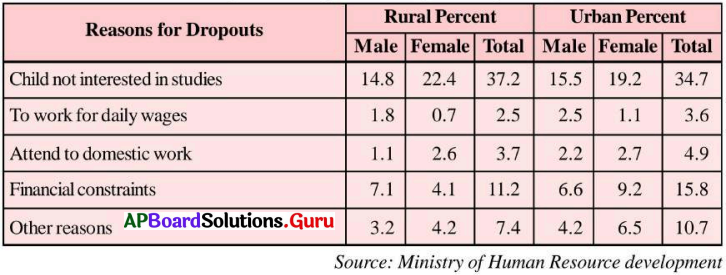
1. What is the table about?
Answer:
The table is about Reasons for dropouts among children aged 5 -14 years ( 1997-98)
2. What is the major reason for dropouts in urban areas?
Answer:
Ctiild not interested in studies
3. What is the total percentage of dropouts in urban areas due to financial constraints?
a) 15.8
b) 11.2
c)34.7
Answer:
a) 15.8
4. Which reason is the least significant for dropouts?
a) Financial constraints
b) to work for daily wages
c) other reasons
Answer:
b) to work for daily wages
5. What is the total percentage of dropouts due to other reasons in rural areas?
a) 3.2
b) 4.2
c) 7.4
Answer:
c) 7.4
The Why – Why Girl Summary
‘The Why-Why Girl’ is an inspiring story written by the Jnanapith award winning writer Mahasweta Devi.
Moyna belonged to a tribal community called Shabars. They were poor and did not own land. The Shabars did not usually send their daughters to work. But Moyna’s had to work because Moyna’s mother had a bad leg and so couldn’t walk properly. Her father had gone to Jamshedpur in search of work and her brother Gora, went to the forest every day to collect firewood. Moyna cannot go to school because she has to tend the goats, collect the firewood, fetch the water and do other works of the landlord. Moyna never thanked the landlords for giving left over rice. She is so full of questions that the postman calls her the ‘why – why girl’. Moyna was barely ten years old when the narrator found her chasing a cobra. She dragged Moyna into the Samiti office, where her mother works.
One day Moyna went to narrator’s house to live with her, with a set of clothes and her pet mongoose. She asked the narrator countless questions including why she reads book before going to sleep.-The narrator replied that reading is a way of finding answers to all her questions. At that moment Moyna decided to go to school and find answers to all her questions. At last Moyna became a teacher of primary school en¬couraging students to ask questions. Moyna is an inspiration and motivation for all of us.
The Why – Why Girl About the Author
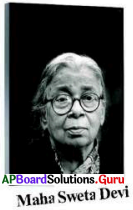
Mahasweta Devi was an Indian writer in Bengali and an activist. She was born on 14th Jan 1926. Her notable literary works include Rudali, Aranyer and Adhikar. She raised issues of politics, gender and class. She was honoured with Sahitya Academy Award, Jnanpith Award, Padma Vibhushan, Banga Bibhushan and Ramon Magasaysay Award. She died on 28th July 2016. The Why-Why Girl is her first picture book beautifully illustrated by Kanyika Kini.
Meanings For Difficult Words
chasing (v) : pursuing or following someone or something to catch
dragged (v) : pulled along forcefully
vigorously (adj) : energetic and lively
obstinate (adj) : stubborn, refusing to change one’s opinion
unyielding (adj) : not giving way to pressure
Shabar (n) : a group of tribes in Odisha and West Bengal
tended (v) : took care of something or someone
exhaust (v) : make (someone) feel tired
retorted (v) : said something in anger or in a witty manner
bleat (n) : wavering cry made by a sheep or goat
impatient (adj) : showing a tendency to be quickly irritated
Be The Best of Whatever You Are Poem
If you can’t be a pine on the top of the hill,
Be a scrub in the valley – but be
The best little scrub’by the side of the rill;
Be a bush if you can’t be a tree.
If you can’t be a bush be a bit of the grass,
And some highway happier make;
If you can’t be a muskie then just be a bass –
But the liveliest bass in the lake!
We can’t all be captains, we’ve got to be crew,
There’s something for all of us here,
There’s big work to do, and there’s lesser to do,
And the task you must do is the near.
If you can’t be a highway then just be a trail,
If you can’t be the sun be a star;
It isn’t by size that you win or you fail
Be the best of whatever you are!
Comprehension
A. Choose the correct options to complete the sentences
1. If you can’t be a pine tree, be a …………..
a) rill
b) hill
c) scrub
Answer:
c) scrub
2. If you can’t be a tree, be a …………..
a) bush
b) branch
c) flower
Answer:
a) bush
3. If you can’t be the ………….. be the crew.
a) leader
b) officer
c) captain
Answer:
c) captain
4. What is less important?
a) no job
b) all the jobs
c) only some jobs
Answer:
a) no job
5. The poet wants us to be the …………. of whatever job/work we do
a) hard working
b) honest
c) best
Answer:
c) best

B. Answer the following questions:
Question 1.
What kind of a scrub one must be, if one can’t be a pinie tree?
Answer:
If one cannot become a pine tree that grows on hills and mountains with all splendor, one must be a little scrub that must be best of its kind.
Question 2.
What does the poet suggest to become if we can’t be the Sun?
Answer:
The poet suggests to become a star if we can’t be the Sun. One’s size does not decide one’s success but one’s excellence. ■
Question 3.
How does the poet want us to be in our work?
Answer:
He wants us to be the best in our work.
Question 4.
Which work/job is great according to the poet’s opinion?
Answer:
No work has less importance. All works have their own importance.
Question 5.
What is the central idea of the poem?
Answer:
The central idea of the poem is to inspire and motivate us to improve ourselves on the point where we stand in society. The poem tells us to make the best use of available opportunities and resources.
C. Pick out the rhyming words from the poem and write them in space given. One is done for you.

Answer:
1. hill – rill
2. be – tree
3. grass – bass
4. make – lake
5. crew – do
6. here – near
7. trail – fail
8. star – are
Check Point
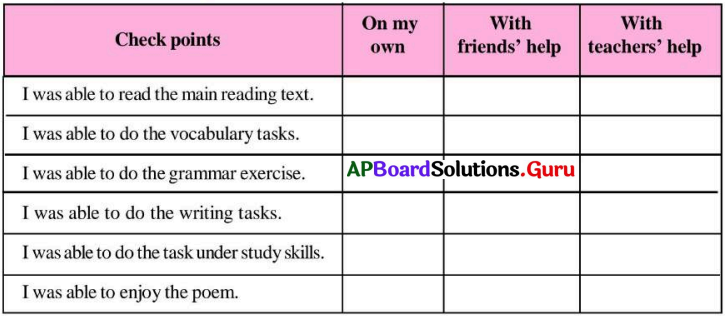
Be The Best of Whatever You Are Summary
The poem Be the Best of whatever you are is a beautiful piece of poetry by Douglas Malloch. The poet has tried to inspire and motivate us to improve ourselves on the point where we stand in society. The poem tells us to make the best use of available opportunities and resources.
Stanza 1 :
In this stanza, the poet says that if you cannot become a pine tree that grows on hills and mountains with all splendor, be a little scrub that must be best of its kind. Here the poet points to the fact that quality matters, not quantity.
If you cannot become a pine tree on a forest hell which is tall and strong, do not stop becoming. You have other options as well. Try to be a scrub in the valley. It does not matter what you become. What matters really is whether you are best in it or not. Here, the poet conveys the message that if you a choice is not appropriate for, do not be hopeless. You have much more than it to become.
Stanza 2 :
In this stanza, the poet says that even if you are unable to become a bush, this is not really disappointing. You can be a bit of grass instead. Although both differ in size and function, they are equally important. By showing these two examples, the poet has emphasized the necessity of excelling in something small rather than playing bad in something big.
Stanza 3 :
In this stanza the poet tries to convey to us the message that diversity is beautiful. Our differences are like color. Each is beautiful in itself. Not everyone can be the captain of the ship. There are some people who are to be on the crew. Both the captain and the crew have different functions to play. In case if we cannot become a captain, we have the opportunity to become a part of the crew and offer our services.
Stanza 4 :
In these lines, the poet says that paths are needed to reach from one point to another. They all are important, for every destination has a different path. In this way, if you cannot be a stretched highway which symbolizes greatness in size, you can become a trail that also provides navigation to the travelers. Likewise, if you are unable to be the sun, be a star. Your size does not decide your success but your excellence.
Be The Best of Whatever You Are About the Author

Douglas Malloch (May 5, 1877 – July 2, 1938) was an American poet, short-story writer and Associate Editor of American Lum¬berman, a trade paper in Chicago. He was known as a “Lumberman’s poet” both locally and nationally. He is noted for writing Round River Drive and “Be the Best of Whatever You Are” in addition to many other creations. He wrote many poems like ‘A Man’, ‘Ain’t I fine today?’, etc.
Meanings For Difficult Words
scrub (n) : bush
rill (n) : streamlet
muskie (n) : a species of fish found in North America (big in size)
bass (n) : a sea or freshwater fish that is used for food (black basses, Asian basses, etc.)
crew (n) : staff

![]()
![]()
![]()
![]()
![]()
![]()
![]()



